Shanaya Girhdarlal
A Phantasmagoria of Value and Waste in Kolkata
In a country like India where waste dominates the visual landscape and will continue to do so in conjunction with claiming its place in the global network, it is essential to trace this waste's inward and outward flow. This thesis explores the inner workings of Dhapa dumpyard in Kolkata as a case study to investigate the relationship between waste and those working at the bottom of this complex network. As I began researching the waste and value chain in conjunction to the waste pickers I was struck by the numerous references on waste as a problem to be solved and the people, a superfluous population, a quantifiable data point that needed to be brought under control. I studied the visual-spatial-political dynamics between the formal and the informal in the form of two chapters. The first chapter emphasizes the importance and existence of a different narrative of work from the one deemed fit by capitalism– a plastic narrative. The second chapter argues that images and visual content on waste and waste pickers presented purges facts and caters to a capitalist human who is willing to sacrifice a human being or generations for a product. I invite the reader to move past dual depictions and rethink the visual- socio-political ontology of dehumanizing those at the bottom.
Image
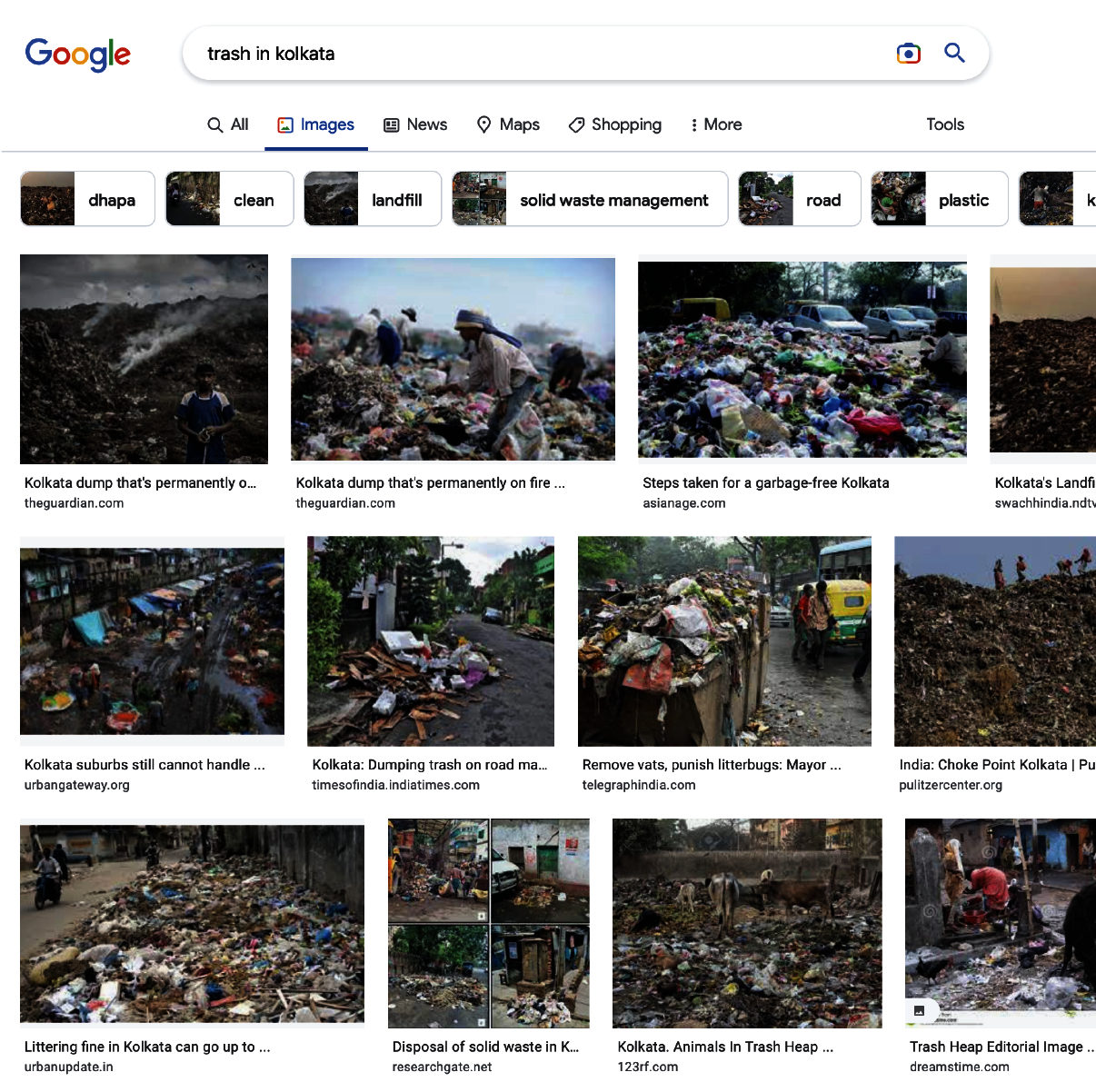
img 01
jpeg
8" x 8"
2023
Google Search: “The Image of the Global South”, “trash mountains”.
Image
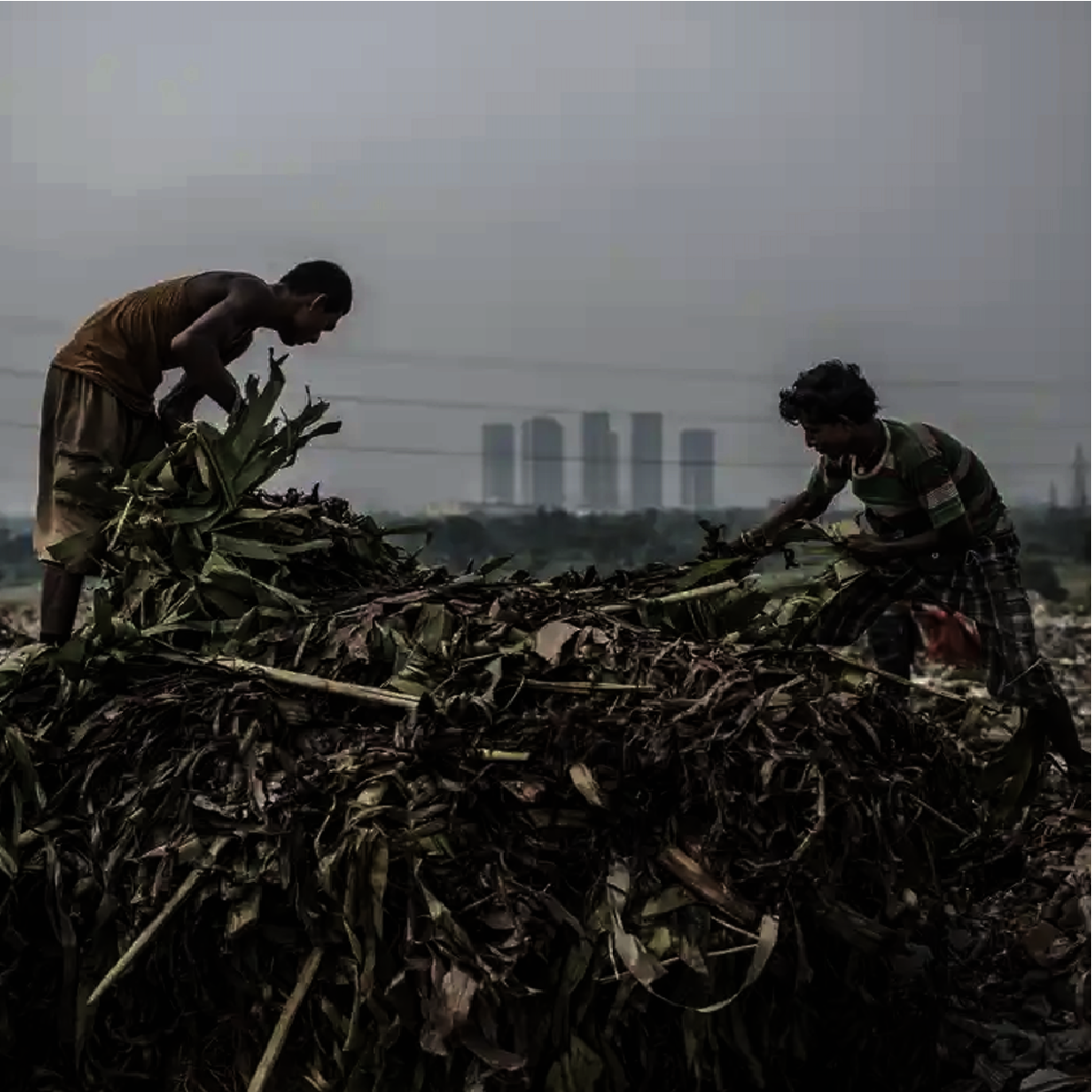
jpeg
8" x 8"
2023
Waste Mountain usurping the body of the waste picker, Dhapa.
Image

jpeg
8" x 8"
2023
Plastic Personhood: Comodification of the body.
Image
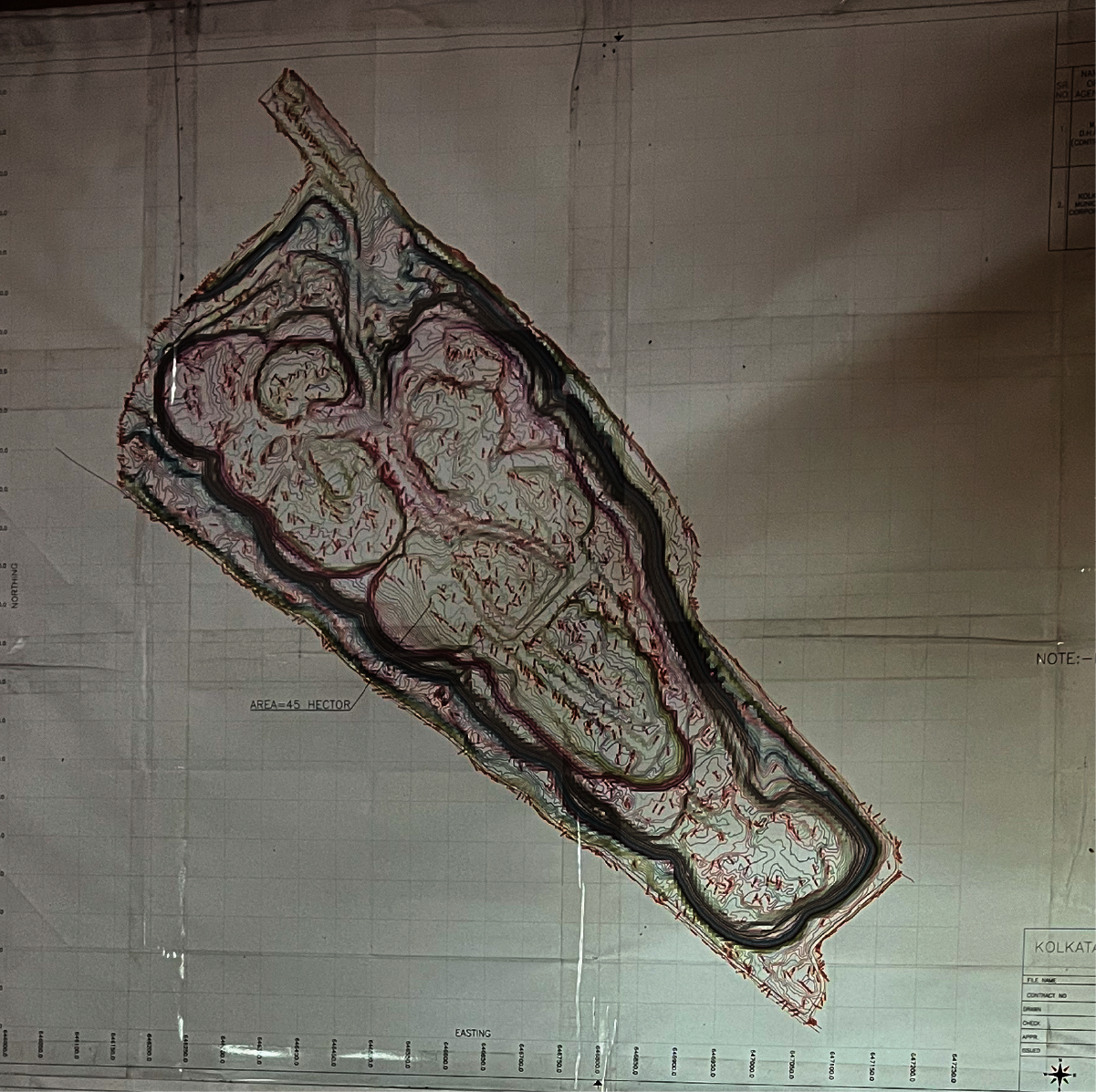
jpeg
8" x 8"
2023
Map of Dhapa Landfill Site, Kolkata
Image
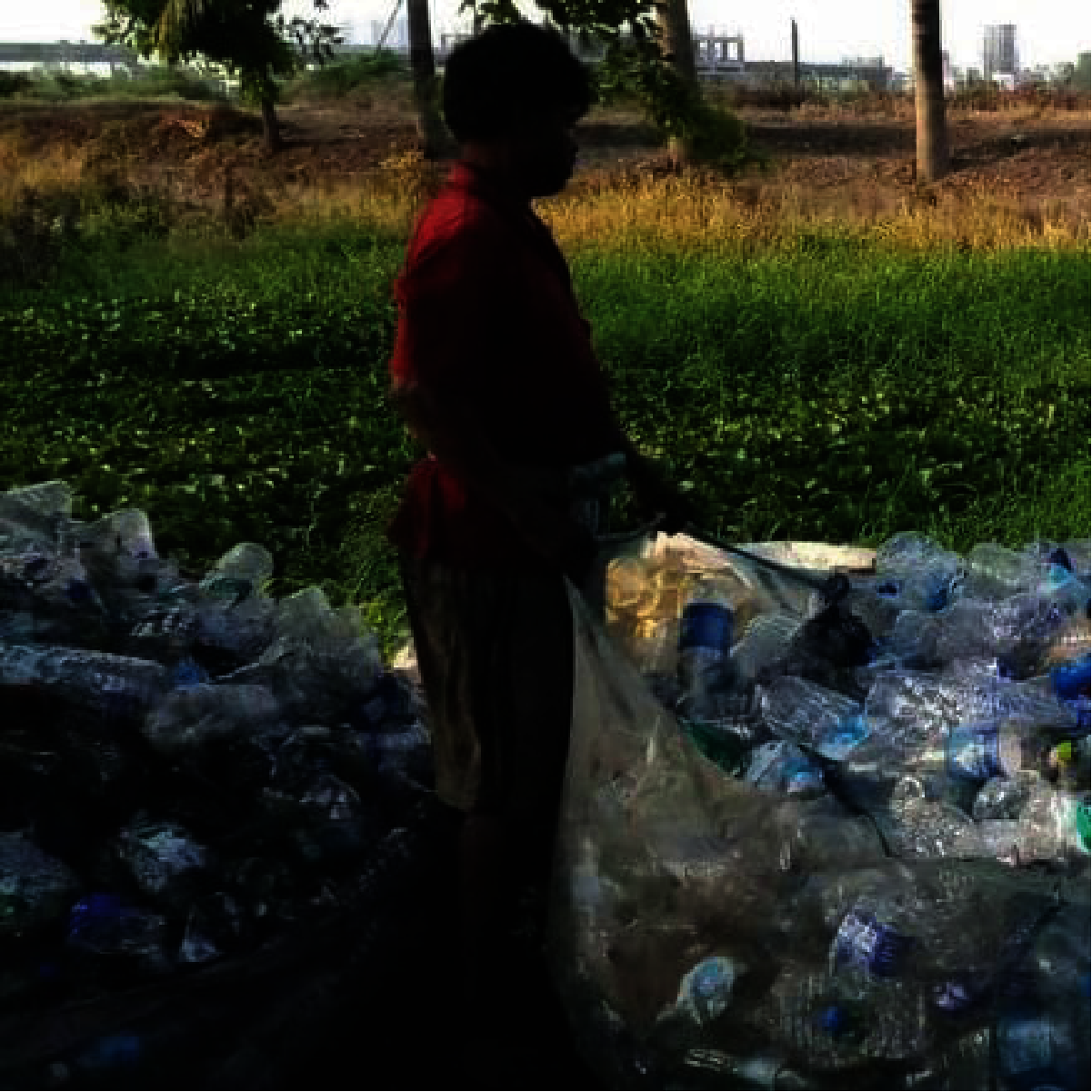
jpeg
8" x 8"
2023
Kabadiwala sorting through garbage which is later sold to a bulk buyer.
Image
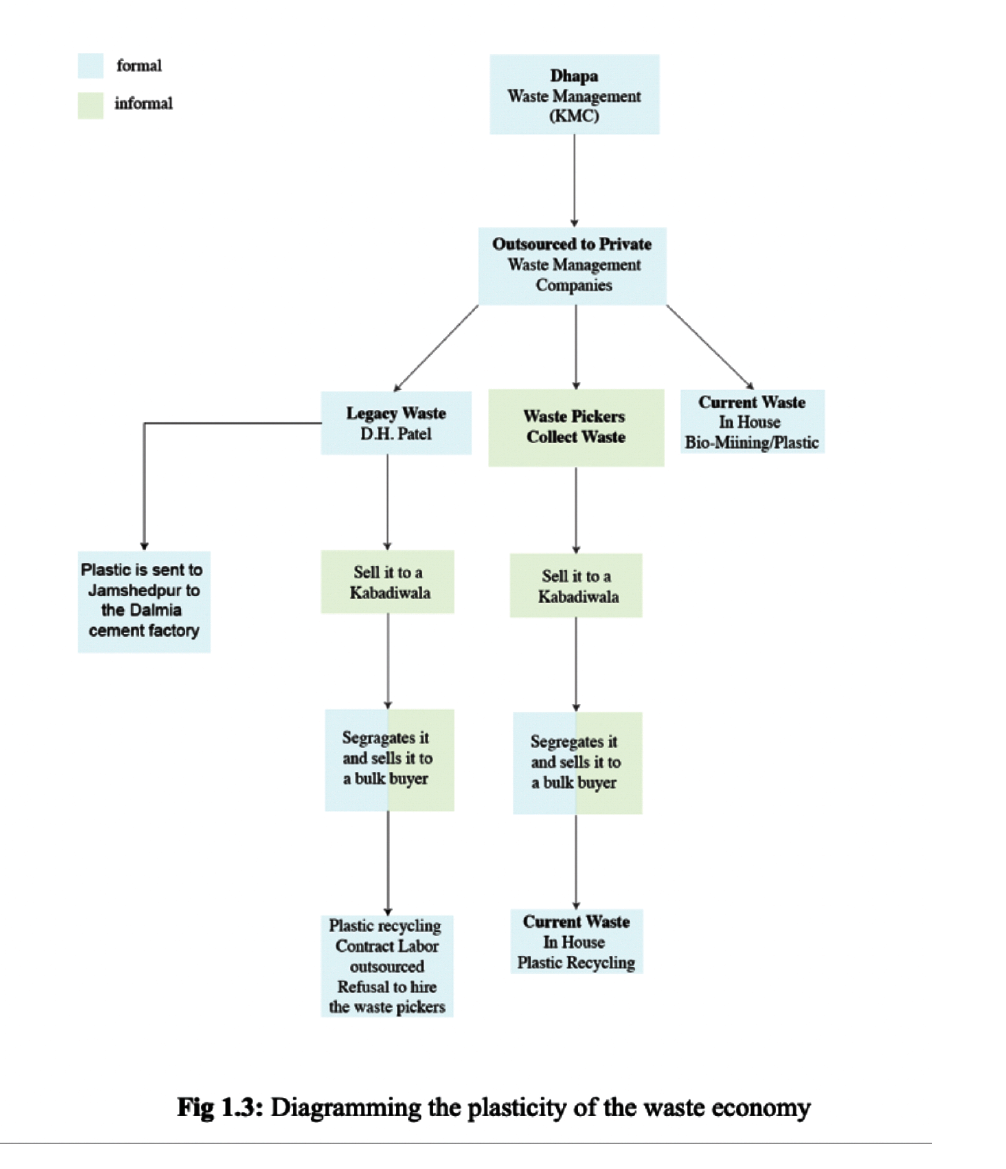
jpeg
8" x 8"
2023
Diagramming the plasticity of the waste economy.

